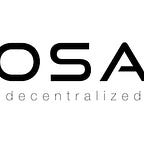According to the United Nations, one in nine people today — or 815 million globally — lacks access to the food necessary to lead a healthy lifestyle. A staggering 98% of these live in developing countries and 75% live in rural areas that depend on agriculture for their livelihood.
The world faces hunger with an average of 6.6 Million children who die before the age of 5 due to the lack of proper nutrition, such errors weigh heavily on our consciences.
Breaking the chain of hunger
The UN World Food Programme (WFP) has recognized the potential of blockchain as a tool that can help feed the hungry. For example in 2016, WFP launched an Innovation Accelerator that allowed them to better identify, support and scale new innovations. One of their projects is Building Blocks, which uses blockchain technology to make the transfer of cash assistance faster, cheaper and more secure. The blockchain allows the WFP to account for balances without the need for a third-party financial service provider to act as an intermediary. Since launching, more than $1.2 million USD in cash has been transferred successfully, showing the UN and other organisations the great potential of blockchain technology in humanitarian aid.
However, this technology has so much more potential beyond the financial sector. In fact, we believe it will help retailers dramatically reduce their waste and, with the billions saved, feed millions of people who might otherwise go hungry. Inefficiencies in food distribution, including that nearly one-third of global food production is lost along the supply chain or wasted by consumers and retailers every year. Perfectly good food is being wasted at every level of the supply chain.
According to The National Resource Defense Council, if we were able to rescue just 15% of the food we waste each year, we’d save enough to feed 25 million Americans. That’s 60% of the number of the population facing food insecurity. What does it say about us, that we’re willing to let millions of pounds of nutritious fruits and vegetables rot, when so many people are going hungry? By solving supply chain problems we can reduce product waste and, as a result, find new solutions for solving humanitarian crises.
Most people presume that world hunger is caused by a lack of food. But Esther Ndichu, the humanitarian supply chain director at UPS, argues that the real issue is logistics. She points out that food often rots just miles from the neediest people and that farmers often can’t get goods to market. By fixing the “last mile,” she shows that hunger can be solved in our lifetime.
With blockchain technology, implemented in Retail by OSA, not a single bottle of milk, one head of lettuce, or even a loaf of bread will ever be thrown away.
Because of the absolute transparency, increased security measures, and incorruptibility of data stored in the distributed ledger of a blockchain, the retail-focused OSA DC platform promises to save the grocery retail industry at least $100 billion lost each year to product waste (food products that surpass their “sold by” date and have to be discarded).
By managing inventory with an intelligent agent like the AI-powered brain behind the OSA DC platform, stores will ensure a product is never “out of stock.”
Food supply chains are complex affairs that have only become more intricate over the last decades. The reason OSA thinks a blockchain could solve all supply chain problems can be summed up in one word: trust. It’s what blockchains were designed for — getting a bunch of counter-parties to agree on a set of transactions.
OSA collects fragmented data throughout the entire supply chain and restructures it. A machine learning engine analyzes that data, corrects any discrepancies, and enriches it for further business and prescriptive analysis. Blockchain will provide an immutable framework to track product movements, conditions, and inventory. So OSA DC can get data in real time from various sources, that makes its data analysis solution unique and reliable.
